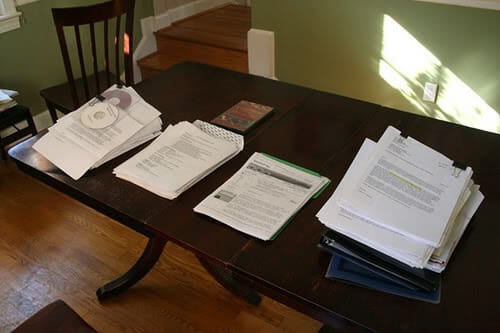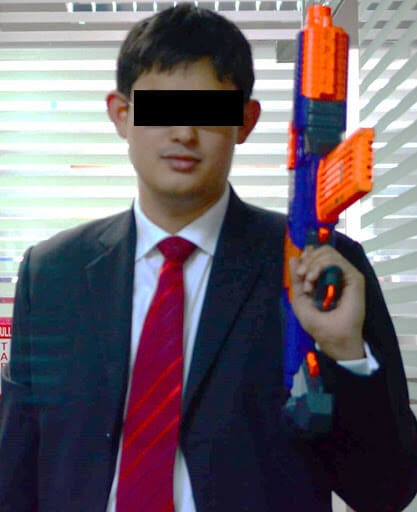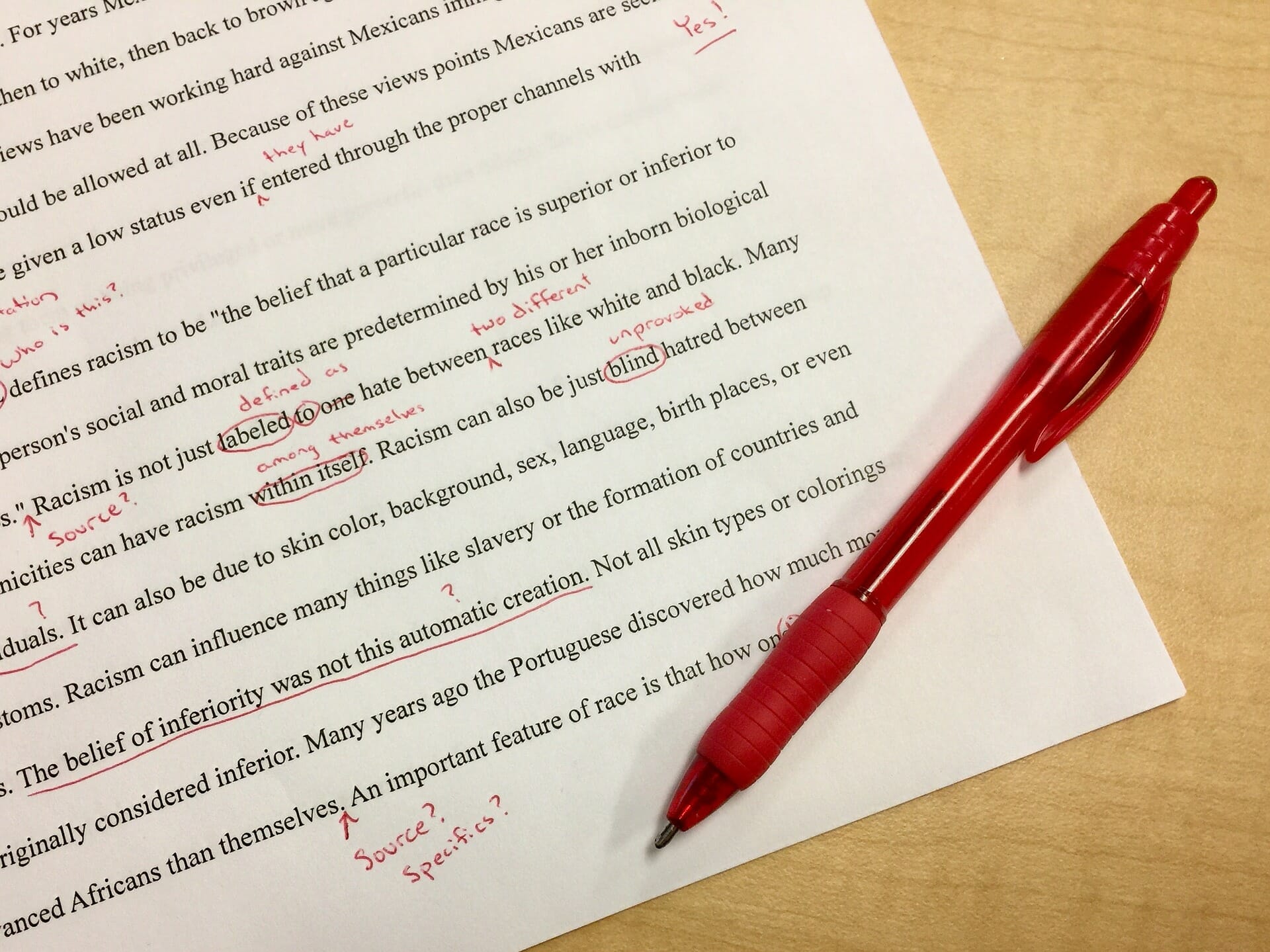The CV is the jobseeker’s most powerful weapon when applying for their dream job.
Recently, my friends discovered what I do for a living in HR, and as you may have guessed, I have been checking one too many CVs lately.
Drawing on that experience, here are 8 useful tips on what not to do when writing a CV.

[source: lifehacker]
1. Learn the Applicant Tracking System
In any given stack of 5 CVs, at least one will be rejected due to a lack of proper keywords, phrases, and content that the Applicant Tracking System is told to look for.
I never even get to see it.
The second will usually get rejected because there is a bad match between the job requirements and the applicants’ skills, knowledge and experience.
The third will go in the “maybe” pile on the left. That’s the backup pile.
The fourth and fifth will go into the “interview” pile on the right.

[source: mentorsonline]
To even get a shot at the interview pile, you’ll have to learn how to ‘game’ the applicant tracking system.
To do this, carefully read the job description of the job you’re applying to and change your keywords in your CV to match the keywords in the job description.
For example, if you studied Economics, but you’re applying for a job in Sales, you need to ditch difficult words like “macroeconomic theory” and take up words like “pipeline”, “conversion”, and “sales volume”.
2. It’s not necessary to include your photo
Unless you are asked for a photo, it’s best not to include one.
You are supposed to get the job based on your abilities, skills, and knowledge, not how cute your smile is, after all.
If you are going to include one because it is requested, then please be professional: Dress in work clothes (a blazer is optional), don’t smile, and for crying out loud, make sure your eyes are open.
A picture of yourself with a Nerf blaster cocked in one hand is going to raise HR’s eyebrows and lower their first impression of you.

[source: an office nerf war that the writer organized. ]
3. Get a professional-sounding email account
Sure, I’ve had my fair share of childish, joking, email accounts.
One of my cousins has had the following email accounts “blardyfool1@hotmail,” “kool_fool_45@gmail”, and most recently “audiophile469@gmail.”
He didn’t understand why I kept jokingly calling him a “pedo” until I explained things to him. “Pedophile, audiophile, sound the same don’t they?”
That look on his face when realization dawned was priceless and meme-worthy. I wish I had taken a picture when he understood why he never heard back from any employer.
I think he had sent about 100 job applications since he earned his Masters Degree. Kesiannya.
Some employers in Malaysia have no idea what an “audiophile” actually is.

So please get yourself a respectable email address, and keep the username professional: Write your name, and add numerals if its already taken. Using your year of birth is generally a safe bet, and don’t reference anything controversial.
For example, mine would be something like moc.liamg@28dijam.mada, (that’s not my real email by the way.)
4. Your Resume is Riddled with Typos
Your CV represents “you” on paper. How much attention goes into that CV is how much HR will use to judge you as a candidate.
One small typo isn’t necessarily a deal-breaker. However, a resume peppered with typos and grammatical errors will be.
Why? Because typos say a lot about a candidate’s attention to detail and written communication: You don’t have either. Some of the best deal breakers I ever read include these gems:
“I am qiuck lerner, who is native bilingual in three language.”
“Greatest player for team I am.” (for Team Yoda in Star Wars maybe.)
And my personal favorite:
“I am an editorial perfectionist with a keen i for detail.”

[source: orangecoach]
5. Eye-Damaging Formatting
Whether its game designer, creative director, doctor or accountant, make sure your formatting is on point. A badly-formatted resume has almost no chance.
Bad formatting is the other major pitfall of otherwise decent CV, next to glaring typos.
Even if you work for a creative agency, keep the CV clean, professional and easy to follow. Microsoft Word comes with good basic templates for a CV.
You can personalize your CV on websites like Wix or Canva, which let you play with visual elements, move them around, and arrange your CV in the most aesthetic way possible.
6. Employment History Issues
Your employment history should be presented with the most recent first, and work your way backward.
This allows HR to get a clear picture of your career, how you’ve grown and progressed over time.
Make sure that the dates (month and year) match up correctly. When those dates overlap significantly or have long gaps between them, HR will notice.
This may or may not be a red flag. Short gaps (a month or two) are generally ok, but be prepared to answer why during the interview.

[source: anita mumm]
If there is a genuine reason for the said gap, consider addressing it in your cover letter.
7. Cut to the Chase
If you’re going for an intro paragraph or mission statement, three lines or a few short sentences will suffice.
Mine looks like this:
“To create engaging written content that aids companies in educating, informing, and entertaining readers that converts them into paying customers.”
HR will spend a maximum of 10 seconds on that first reading of your CV, so make the relevant info easy to access.
Don’t put a whole essay at the top of your CV – it will get shoved to the bottom of the pile for later reading and promptly be forgotten.
The best ones are always targeted to the position you are applying for, with the keywords attached.
8. Those really weird hobbies.
Your hobbies and interests should help round out your character, and present you as a well-balanced, wholesome individual. Not some closeted serial-killer in training.
As the guy who loves waving a giant glow stick and calling it a lightsaber, I am the last person to throw stones about weird hobbies.
(Disclaimer: No, I have never tried to force choke my boss, co-worker or fellow employee on the Death Star.)
But there is a difference between my nerdy hobbies and “an interest in firearms,” “collecting navel fluff,” and “extreme ironing.”

[who would win? Lightsaber fighters v. S. Extreme ironing? Source: the writer]
Yes, those last two are apparently actual hobbies.
Acceptable hobbies can be anything that falls within the normal range of expectations for the company you want to work for.
Yoga, hiking, cooking, football, salsa dancing – these are some examples.
It also helps if your hobbies are related to the job you are applying for.
If you are applying to be a game developer, then gaming should be on the hobby list; if you are applying for a copywriter position, then “creative writing” would be good hobby to have.
This one’s extra: How do I contact you?!
You have relevant experience. You show an amazing list of accomplishments. You have the right skills, education.
HR wants to call to give you the job after a pro forma interview, and… there is no contact information on the resume.

[source: 123rf]
This is how you break an HR department employee. You would be amazed and saddened by how often this occurs.
Here’s hoping that if I see your CV, you will be one of the Chosen Ones… You did include your contact info, right?
Do you have any stories about CV mistakes you’ve made in the past? Let us know in the comments!
For more articles about the job hunt, read Malaysian Job Interviews: Are You Making These 4 Mistakes? (Advice from a HR officer) and I Still Haven’t Found a Job for the past 6 Months – What Should I Do?

You might also like
More from Real Skills
How I Saved Almost RM50,000 On Buying My First Car
Here's how this Malaysian man with a RM3,500 salary saved RM50,000 on his first car.
Angry M’sian Boss Demands Unpaid Overtime Over Raya, Causes 9 Staff To Quit
An anonymous employee at a local SME shares how a bad-tempered boss eventually caused 9 staff to quit before Hari …
I Studied In Chinese School As A Malay Boy, Here’s What I Learnt
Every time I used Mandarin outside of school, family members would come up to me at gatherings and ask me …

















